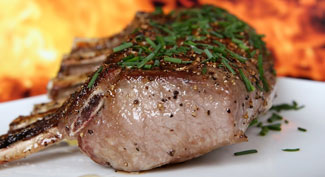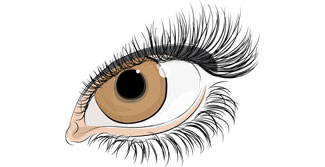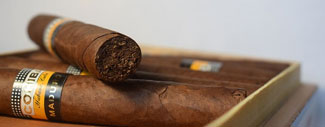The Time Machine — EN
III
The Time Traveller Returns
I think that at that time none of us quite believed in the Time Machine. The fact is, the Time Traveller was one of those men who are too clever to be believed: you never felt that you saw all round him; you always suspected some subtle reserve, some ingenuity in ambush, behind his lucid frankness. Had Filby shown the model and explained the matter in the Time Traveller’s words, we should have shown him far less scepticism. For we should have perceived his motives; a pork butcher could understand Filby. But the Time Traveller had more than a touch of whim among his elements, and we distrusted him. Things that would have made the frame of a less clever man seemed tricks in his hands. It is a mistake to do things too easily. The serious people who took him seriously never felt quite sure of his deportment; they were somehow aware that trusting their reputations for judgment with him was like furnishing a nursery with egg-shell china. So I don’t think any of us said very much about time travelling in the interval between that Thursday and the next, though its odd potentialities ran, no doubt, in most of our minds: its plausibility, that is, its practical incredibleness, the curious possibilities of anachronism and of utter confusion it suggested. For my own part, I was particularly preoccupied with the trick of the model. That I remember discussing with the Medical Man, whom I met on Friday at the Linnaean. He said he had seen a similar thing at Tubingen, and laid considerable stress on the blowing out of the candle. But how the trick was done he could not explain.
The next Thursday I went again to Richmond – suppose I was one of the Time Traveller’s most constant guests – and, arriving late, found four or five men already assembled in his drawing-room. The Medical Man was standing before the fire with a sheet of paper in one hand and his watch in the other. I looked round for the Time Traveller, and – “It’s half-past seven now,” said the Medical Man. “I suppose we’d better have dinner?”
“Where’s – –?” said I, naming our host.
“You’ve just come? It’s rather odd. He’s unavoidably detained. He asks me in this note to lead off with dinner at seven if he’s not back. Says he’ll explain when he comes.”
“It seems a pity to let the dinner spoil,” said the Editor of a well-known daily paper; and thereupon the Doctor rang the bell.
The Psychologist was the only person besides the Doctor and myself who had attended the previous dinner. The other men were Blank, the Editor aforementioned, a certain journalist, and another – a quiet, shy man with a beard – whom I didn’t know, and who, as far as my observation went, never opened his mouth all the evening. There was some speculation at the dinner-table about the Time Traveller’s absence, and I suggested time travelling, in a half-jocular spirit. The Editor wanted that explained to him, and the Psychologist volunteered a wooden account of the “ingenious paradox and trick” we had witnessed that day week. He was in the midst of his exposition when the door from the corridor opened slowly and without noise. I was facing the door, and saw it first. “Hallo!” I said. “At last!” And the door opened wider, and the Time Traveller stood before us. I gave a cry of surprise. “Good heavens! man, what’s the matter?” cried the Medical Man, who saw him next. And the whole tableful turned towards the door.
He was in an amazing plight. His coat was dusty and dirty, and smeared with green down the sleeves; his hair disordered, and as it seemed to me greyer – either with dust and dirt or because its colour had actually faded. His face was ghastly pale; his chin had a brown cut on it – a cut half healed; his expression was haggard and drawn, as by intense suffering. For a moment he hesitated in the doorway, as if he had been dazzled by the light. Then he came into the room. He walked with just such a limp as I have seen in footsore tramps. We stared at him in silence, expecting him to speak.
He said not a word, but came painfully to the table, and made a motion towards the wine. The Editor filled a glass of champagne, and pushed it towards him. He drained it, and it seemed to do him good: for he looked round the table, and the ghost of his old smile flickered across his face. “What on earth have you been up to, man?” said the Doctor. The Time Traveller did not seem to hear. “Don’t let me disturb you,” he said, with a certain faltering articulation. “I’m all right.” He stopped, held out his glass for more, and took it off at a draught. “That’s good,” he said. His eyes grew brighter, and a faint colour came into his cheeks. His glance flickered over our faces with a certain dull approval, and then went round the warm and comfortable room. Then he spoke again, still as it were feeling his way among his words. “I’m going to wash and dress, and then I’ll come down and explain things… Save me some of that mutton. I’m starving for a bit of meat.”
He looked across at the Editor, who was a rare visitor, and hoped he was all right. The Editor began a question. “Tell you presently,” said the Time Traveller. “I’m – funny! Be all right in a minute.”
He put down his glass, and walked towards the staircase door.
Again I remarked his lameness and the soft padding sound of his footfall, and standing up in my place, I saw his feet as he went out. He had nothing on them but a pair of tattered blood-stained socks. Then the door closed upon him. I had half a mind to follow, till I remembered how he detested any fuss about himself. For a minute, perhaps, my mind was wool-gathering. Then, “Remarkable Behaviour of an Eminent Scientist,” I heard the Editor say, thinking (after his wont) in headlines. And this brought my attention back to the bright dinner-table.
“What’s the game?” said the Journalist. “Has he been doing the Amateur Cadger? I don’t follow.” I met the eye of the Psychologist, and read my own interpretation in his face. I thought of the Time Traveller limping painfully upstairs. I don’t think any one else had noticed his lameness.
The first to recover completely from this surprise was the Medical Man, who rang the bell – the Time Traveller hated to have servants waiting at dinner – for a hot plate. At that the Editor turned to his knife and fork with a grunt, and the Silent Man followed suit. The dinner was resumed. Conversation was exclamatory for a little while, with gaps of wonderment; and then the Editor got fervent in his curiosity. “Does our friend eke out his modest income with a crossing? or has he his Nebuchadnezzar phases?” he inquired. “I feel assured it’s this business of the Time Machine,” I said, and took up the Psychologist’s account of our previous meeting. The new guests were frankly incredulous. The Editor raised objections. “What was this time travelling? A man couldn’t cover himself with dust by rolling in a paradox, could he?” And then, as the idea came home to him, he resorted to caricature. Hadn’t they any clothes-brushes in the Future? The Journalist too, would not believe at any price, and joined the Editor in the easy work of heaping ridicule on the whole thing. They were both the new kind of journalist – very joyous, irreverent young men. “Our Special Correspondent in the Day after Tomorrow reports,” the Journalist was saying – or rather shouting – when the Time Traveller came back. He was dressed in ordinary evening clothes, and nothing save his haggard look remained of the change that had startled me.
“I say,” said the Editor hilariously, “these chaps here say you have been travelling into the middle of next week! Tell us all about little Rosebery, will you? What will you take for the lot?”
The Time Traveller came to the place reserved for him without a word. He smiled quietly, in his old way. “Where’s my mutton?” he said. “What a treat it is to stick a fork into meat again!”
“Story!” cried the Editor.
“Story be damned!” said the Time Traveller. “I want something to eat. I won’t say a word until I get some peptone into my arteries. Thanks. And the salt.”
“One word,” said I. “Have you been time travelling?”
“Yes,” said the Time Traveller, with his mouth full, nodding his head.
“I’d give a shilling a line for a verbatim note,” said the Editor. The Time Traveller pushed his glass towards the Silent Man and rang it with his fingernail; at which the Silent Man, who had been staring at his face, started convulsively, and poured him wine. The rest of the dinner was uncomfortable. For my own part, sudden questions kept on rising to my lips, and I dare say it was the same with the others. The Journalist tried to relieve the tension by telling anecdotes of Hettie Potter. The Time Traveller devoted his attention to his dinner, and displayed the appetite of a tramp. The Medical Man smoked a cigarette, and watched the Time Traveller through his eyelashes. The Silent Man seemed even more clumsy than usual, and drank champagne with regularity and determination out of sheer nervousness. At last the Time Traveller pushed his plate away, and looked round us. “I suppose I must apologize,” he said. “I was simply starving.
I’ve had a most amazing time.” He reached out his hand for a cigar, and cut the end. “But come into the smoking-room. It’s too long a story to tell over greasy plates.” And ringing the bell in passing, he led the way into the adjoining room.
“You have told Blank, and Dash, and Chose about the machine?” he said to me, leaning back in his easy-chair and naming the three new guests.
“But the thing’s a mere paradox,” said the Editor.
“I can’t argue tonight. I don’t mind telling you the story, but I can’t argue. I will,” he went on, “tell you the story of what has happened to me, if you like, but you must refrain from interruptions. I want to tell it. Badly. Most of it will sound like lying. So be it! It’s true – every word of it, all the same. I was in my laboratory at four o’clock, and since then… I’ve lived eight days… such days as no human being ever lived before! I’m nearly worn out, but I shan’t sleep till I’ve told this thing over to you. Then I shall go to bed. But no interruptions! Is it agreed?”
“Agreed,” said the Editor, and the rest of us echoed “Agreed.”
And with that the Time Traveller began his story as I have set it forth. He sat back in his chair at first, and spoke like a weary man. Afterwards he got more animated. In writing it down I feel with only too much keenness the inadequacy of pen and ink – and, above all, my own inadequacy – to express its quality. You read, I will suppose, attentively enough; but you cannot see the speaker’s white, sincere face in the bright circle of the little lamp, nor hear the intonation of his voice. You cannot know how his expression followed the turns of his story! Most of us hearers were in shadow, for the candles in the smoking-room had not been lighted, and only the face of the Journalist and the legs of the Silent Man from the knees downward were illuminated. At first we glanced now and again at each other. After a time we ceased to do that, and looked only at the Time Traveller’s face.
ingenuity ˌɪnʤɪˈnju(ː)ɪti n The quality of being clever, original, and inventive.
in ambush ⇒ In wait in a concealed positionwith an intention to make a surprise attack on someone.
lucid ˈluːsɪd adj Free from what obscures or dims: clear, transparent, limpid
 butcher ˈbʊʧə n One that slaughters and dresses animals for food or market.
butcher ˈbʊʧə n One that slaughters and dresses animals for food or market.
more than a touch of whim ⇒ More than just a freak.
the frame of ⇒ A mental or physical condition.
deportment dɪˈpɔːtmənt n The manner in which one behaves: way, behaviour, conduct, actions
egg-shell china ⇒ Chinese porcelain characterized by an excessively thin body under the glaze; china ˈʧaɪnə n Dishware made of high quality porcelain.
plausibility ˌplɔːzəˈbɪlɪti n Worthiness of being believed.
anachronism əˈnækrənɪzm n Something located at a time when it could not have existed or occurred.
utter ˈʌtə adj Complete and absolute
preoccupied pri(ː)ˈɒkjʊpaɪd adj Completely engrossed in thought: absorbed
The Linnean Society of London ⇒ A learned society dedicated to the study and dissemination of information concerning natural history and evolution.
Tubingen ⇒ A traditional university town in central Baden-Württemberg, Germany.
Richmond upon Thames ⇒ Southwest London Borough home to the National Physical Laboratory, The National Archives and Royal Botanic Gardens.
to look round for ⇒ To be in search for.
unavoidable ˌʌnəˈvɔɪdəbl adj Sure to happen: certain, inevitable, inescapable
detain dɪˈteɪn v To maintain restraining control and possession of: hold, hold up
to lead off ⇒ To make a start, to open.
spoil spɔːɪl v To become bad, or unfit for use: decay
thereupon ˈðeərəˈpɒn v Then; immediately.
aforementioned əˌfɔːˈmɛnʃənd adj Mentioned earlier: abovementioned, aforenamed, aforesaid
as far as something goes ⇒ As for, so far as something is concerned.
speculation ˌspɛkjʊˈleɪʃən n A message expressing an opinion based on incomplete evidence: guess, conjecture, supposition, surmise, surmisal, hypothesis
jocular ˈʤɒkjʊlə adj Characterized by jokes and good humour.
volunteer ˌvɒlənˈtɪər v To put before another for acceptance: offer, present, tender
ingenious ɪnˈʤiːniəs adj Very smart or clever.
hallo həˈləʊ int Used as a greeting.
at last ⇒ After a long wait; finally.
what’s the matter? ⇒ What’s up, what’s the problem?
tableful ˈteɪblfʊl n The number of persons that can be seated at a table.
plight plaɪt n Situation, especially a bad or unfortunate one.
smear smɪə v To spread something over a surface.
ghastly ˈgɑːstli adj Very shocking or horrible.
haggard ˈhægəd adj Pale,tired and exhausted because of great hunger, worry, sleeplessness, pain, etc.: gaunt, wan, careworn, worn
dazzle ˈdæzl v To dim the vision of, especially to blind with intense light: daze, bedazzle
limp lɪmp n Slow and awkward way of walking caused by an injury to a leg or foot.
footsore ˈfʊtsɔː adj Having sore or tired feet, as from too much walking.
tramp træmp n Walking trip.
 champagne ʃæmˈpeɪn n White sparkling wine either produced in Champagne wine region in France or resembling that produced there.
champagne ʃæmˈpeɪn n White sparkling wine either produced in Champagne wine region in France or resembling that produced there.
flicker ˈflɪkə v Shine unsteadily.
what on earth have you been up to ⇒ what for God’s sake has happened to you.
faltering ˈfɔːltərɪŋ adj Hesitating, uncertain, staggering.
articulation ɑːˌtɪkjʊˈleɪʃ(ə)n n The act of saying something in a way that can be clearly understood.
to take a glass off at a draught ⇒ To drink everything that is in a glass at a single gulp.
dull dʌl adj Not clear and loud.
 mutton ˈmʌtn n Flesh of fully grown sheep.
mutton ˈmʌtn n Flesh of fully grown sheep.
starve stɑːv v To die or perish from lack of food or nourishment.
lameness ˈleɪmnɪs n Disability of walking due to crippling of the legs or feet.
pad pæd v To line or stuff with soft material.
footfall ˈfʊtfɔːl n The sound made by someone walking each time he takes a step.
tattered ˈtætəd adj Worn or with hanging pieces of cloth.
 blood-stained ⇒ Made dirty with spots of blood.
blood-stained ⇒ Made dirty with spots of blood.
to have half a mind to ⇒ To be almost ready to.
detest dɪˈtɛst v To feel abhorrence of or dislike intensely: hate
fuss fʌs n Needlessly nervous or useless activity or agitation: commotion
wool-gathering ⇒ Absent-minded, with one’s head in the clouds; indulgence in fanciful daydreams.
eminent ˈɛmɪnənt adj Standing above others in quality, height or position.
wont wəʊnt n An established custom: habit
cadger ˈkæʤə n Someone who tries to get his living by trickery or begging: begger
limp lɪmp v To walk in a slow and awkward way because of an injury to a leg or foot.
grunt grʌnt n Low, indistinct utterance of complaint: murmur, grumble, mutter
to follow suit ⇒ To play a card of the same suit as the one led; (here) To do as another has done; follow an example.
exclamatory ɛksˈklæmətəri adj Containing, relating to, or using exclamation.
wonderment ˈwʌndəmənt n Astonishment, awe, puzzlement.
fervent ˈfɜːvənt adv Having or showing great warmth or intensity of spirit, feeling, enthusiasm, etc.: ardent
to eke out ⇒ To supplement what is scanty so as to make up or supply deficiencies.
crossing ˈkrɒsɪŋ n The process of crossbreeding; hybridization.
Nebuchadnezzar phases ⇒ Nebuchadnezzar (604? – 561 B. C.) a king of Babylonia and conqueror of Jerusalem; Nebuchadnezzar is in reference to the babylonian king who was transformed into a beast after losing his kingdom (Daniel 2:2–28).
to take up a story ⇒ To begin telling a story after someone else has started it.
incredulous ɪnˈkrɛdjʊləs adj Refusing or reluctant to believe: skeptical, unbelieving, disbelieving, questioning
objection əbˈʤɛkʃən n A reason for disagreeing with or opposing something
an idea comes home to someone ⇒ To understand, to grasp; to become conscious of.
at any price ⇒ On no account, by no means.
to heap ridicule on ⇒ To beset someone with ridicules.
irreverent ɪˈrɛvərənt adj Lacking or exhibiting a lack of reverence: disrespectful
startle ˈstɑːtl v To surprise or frighten someone suddenly but not seriously: frighten, scare, terrify, alarm
hilariously hɪˈleərɪəsli adv In a very funny manner: uproariously
chap ʧæp n A man or boy; a fellow.
little Rosebery ⇒ An allusion to Lord Rosebery (1847 – 1929) Prime Minister of England for a short time from March 1894 to June 1895. In 1894, his racehorse, Ladas, performed the remarkable feat of winning three major races. The epithet “little” derives from Rosebery’s boyish appearance. The Editor wants racing tips and political information based on the Time Traveller’s “inside” knowledge of the future.
what a treat it is to do something ⇒ What a pleasure it is to do something
Story be damned! ⇒ I don’t care a bit about the story.
to get a peptone into on one’s arteries ⇒ To eat something; peptone 〈ˈpɛptəʊn〉 n A compound obtained by acid or enzyme hydrolysis of natural protein and used as nutrients in culture media.
I’d give a shilling a line ⇒ I’m ready to pay a shilling for each line.
verbatim vɜːˈbeɪtɪm adj Employing the very same words as another: verbal, literal, word-for-word
convulsively kənˈvʌlsɪvli adv Spasmodically.
keep on ⇒ To remain in a place or position or maintain a property or feature.
tension ˈtɛnʃən n Mental, emotional, or nervous strain: pressure, stress, strain
tramp træmp n One who travels aimlessly about on foot, doing odd jobs or begging for a living: vagrant
 eyelash ˈaɪlæʃ n Any of the short hairs fringing the edge of the eyelid.
eyelash ˈaɪlæʃ n Any of the short hairs fringing the edge of the eyelid.
clumsy ˈklʌmzi adj Lacking physical coordination, skill, or grace: awkward
 cigar sɪˈgɑː n A more or less cylindrical roll of tobacco cured for smoking, of any of various lengths, thicknesses, degrees of straightness, etc., usually wrapped in a tobacco leaf.
cigar sɪˈgɑː n A more or less cylindrical roll of tobacco cured for smoking, of any of various lengths, thicknesses, degrees of straightness, etc., usually wrapped in a tobacco leaf.
greasy ˈgriːzi adj Coated with grease: oily, oleaginous
adjoining əˈʤɔɪnɪŋ adj Being contiguous or next to: touching, neighboring, bounding, bordering
I don’t mind doing something ⇒ I’m not opposed to doing something
refrain form rɪˈfreɪn fɔːm v To hold back from doing something.
worn out ⇒ Very tired, absolutely exhausted.
to set forth ⇒ To make something known, state clearly and in detail.
weary ˈwɪəri adj Physically or mentally tired or exhausted.
inadequacy ɪnˈædɪkwəsi n The condition of being incapable of accomplishing or effecting anything: ineffectiveness, incapability
sincere sɪnˈsɪə adj Free of deceit, hypocrisy, or falseness: earnest
illuminate ɪˈljuːmɪneɪt v To make lighter or brighter; to supply or brighten with light; light up.